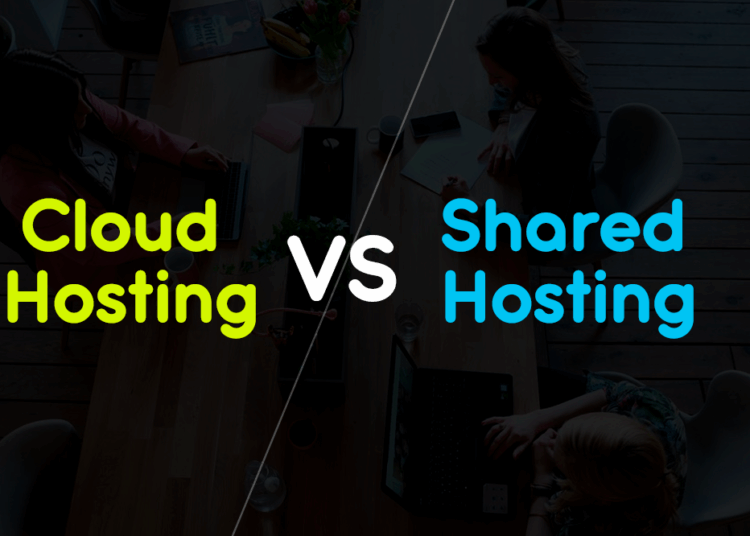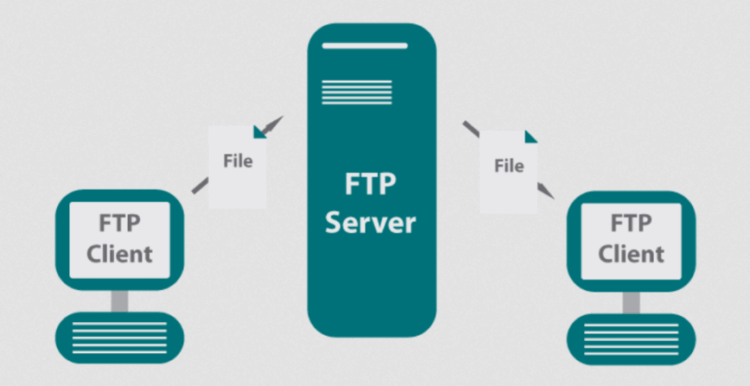Delving into Cloud hosting vs shared hosting: Which is better?, this introduction immerses readers in a unique and compelling narrative, with casual formal language style that is both engaging and thought-provoking from the very first sentence.
Exploring the fundamental differences between cloud hosting and shared hosting is crucial in understanding which option may be more suitable for your website.
Introduction to Cloud Hosting and Shared Hosting
When it comes to hosting a website, two popular options are cloud hosting and shared hosting. Both serve as platforms for storing and managing websites, but they have distinct differences in terms of performance, scalability, and cost.Definition of Cloud Hosting and Shared Hosting
Cloud hosting involves hosting websites on virtual servers that pull their computing resources from extensive underlying networks of physical web servers. On the other hand, shared hosting refers to a hosting environment where multiple websites are hosted on a single server and share its resources.Key Differences Between Cloud Hosting and Shared Hosting
- Scalability: Cloud hosting offers scalability by allowing users to easily scale resources up or down based on traffic demands, whereas shared hosting has limited scalability due to sharing resources with other websites.
- Performance: Cloud hosting typically provides better performance as resources are distributed across multiple servers, ensuring high availability and uptime, while shared hosting may experience performance issues during peak traffic periods.
- Security: Cloud hosting offers enhanced security measures such as data encryption, firewalls, and regular backups, whereas shared hosting poses security risks as websites share the same server and IP address.
- Cost: Shared hosting is generally more cost-effective for small websites with low traffic, while cloud hosting may be more expensive but offers better value for high-traffic sites that require scalability and performance.
Significance of Choosing the Right Hosting for a Website
Choosing the right hosting type is crucial for the success of a website. The hosting environment can impact website performance, security, scalability, and overall user experience. It is essential to consider factors such as website traffic, resource requirements, budget, and growth plans when deciding between cloud hosting and shared hosting.Performance and Scalability
Cloud hosting offers better performance compared to shared hosting due to its ability to allocate dedicated resources to each website, ensuring faster loading times and improved overall speed. This is especially crucial for websites with high traffic volumes or complex applications that require more computing power.Performance:
- Cloud hosting utilizes a network of virtual servers to distribute resources efficiently, resulting in better performance for websites.
- With cloud hosting, websites can easily handle sudden spikes in traffic without experiencing downtime or slowdowns, ensuring a seamless user experience.
- Shared hosting, on the other hand, shares resources among multiple websites, which can lead to slower loading times and performance issues, especially during peak traffic periods.
Scalability:
- Cloud hosting offers scalability options that allow websites to easily upgrade or downgrade resources based on their needs, providing flexibility and cost-effectiveness.
- Websites hosted on the cloud can quickly scale resources such as CPU, RAM, and storage without any downtime, ensuring optimal performance at all times.
- In contrast, shared hosting plans have limited scalability options, making it challenging for websites to accommodate growth or sudden increases in traffic without experiencing performance issues.
Security Features
When it comes to hosting services, security is a critical aspect that website owners need to consider. In this section, we will explore the security features provided by cloud hosting in comparison to shared hosting, as well as the potential security risks associated with shared hosting.Security Features of Cloud Hosting:
- Isolation of Resources: In cloud hosting, each website is hosted on its own virtual server, providing a higher level of isolation from other users. This helps prevent security breaches that may occur in a shared hosting environment.
- Scalability and Flexibility: Cloud hosting allows for easy scaling of resources based on your needs, ensuring that your website can handle sudden traffic spikes without compromising security.
- Backup and Recovery: Most cloud hosting providers offer automated backup and recovery options, ensuring that your data is secure and can be easily restored in case of a cyber attack.
- DDoS Protection: Cloud hosting services often come with built-in DDoS protection to help mitigate and prevent distributed denial-of-service attacks.
Security Risks of Shared Hosting:
- Shared Resources: In shared hosting, multiple websites share the same server resources, making it easier for a security breach on one website to affect others on the same server.
- Outdated Software: Shared hosting servers may not always be promptly updated with the latest security patches, leaving websites vulnerable to known security threats.
- Weaker Isolation: Shared hosting lacks the same level of isolation as cloud hosting, increasing the risk of unauthorized access to sensitive data or malicious activities.
Cost Comparison
When it comes to cost, Cloud Hosting and Shared Hosting have different pricing structures that cater to varying needs and budgets. Let's delve into the details of how these hosting options compare in terms of cost-effectiveness.Cost Structure
- Shared Hosting typically offers lower monthly costs compared to Cloud Hosting. This is because resources are shared among multiple websites on the same server, leading to cost savings for users.
- Cloud Hosting, on the other hand, follows a pay-as-you-go pricing model. This means that users only pay for the resources they actually use, making it a more flexible and scalable option.
Pricing Models
- Shared Hosting usually comes with fixed monthly or yearly pricing plans. This makes it easier for users to budget their hosting expenses without worrying about fluctuations in costs.
- Cloud Hosting, however, offers a more dynamic pricing structure based on resource usage. Users are billed according to the amount of resources they consume, allowing for cost optimization based on actual needs.
Factors Influencing Cost-effectiveness
- Website Traffic: Shared Hosting is suitable for low to moderate traffic websites, while Cloud Hosting can handle high traffic volumes more efficiently. Consider your website's traffic levels when choosing the most cost-effective hosting option.
- Scalability Needs: If your website is expected to grow rapidly, Cloud Hosting may be a more cost-effective choice in the long run due to its scalability and ability to accommodate increasing resource demands without incurring high costs.
- Resource Requirements: Evaluate the specific resources your website needs, such as storage space, bandwidth, and processing power. Cloud Hosting allows you to adjust these resources as needed, potentially saving costs compared to fixed shared hosting plans with unused resources.










